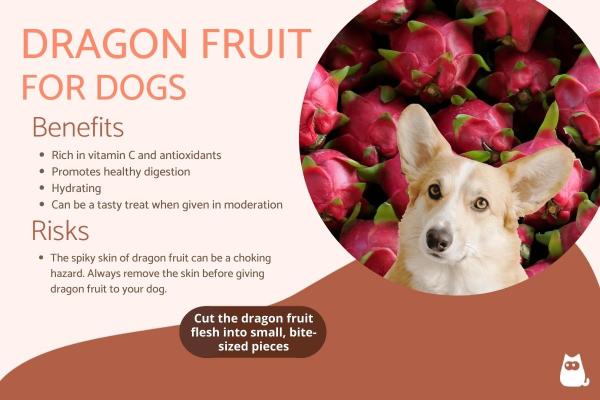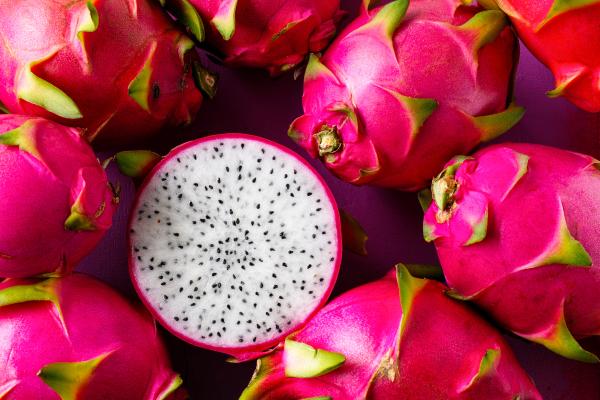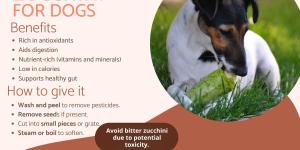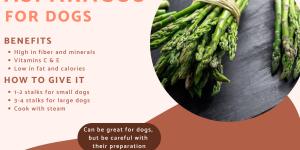Is Dragon Fruit Good for Dogs?



See files for Dogs
Dragon fruit, with its vibrant colors and unique appearance, has become a popular health food for humans, packed with vitamins and antioxidants. But as a dog owner, you might wonder if this exotic fruit is safe for your furry friend. While some fruits are beneficial for dogs, others can be harmful.
In this AnimalWised article, we’ll explore whether dragon fruit is good for dogs, the potential benefits it offers, and any risks you should be aware of before sharing this tropical treat with your pet.
Can dogs eat dragon fruit?
Dragon fruit, also known as pitahaya, is the fruit of a drought-resistant cactus plant. This plant often climbs nearby trees, using them for support as it reaches up to 10 meters (33 feet) high, absorbing moisture from the tree bark without rooting deep in the soil.
The plant produces tubular flowers that bloom at night, but quickly dehydrate as daylight progresses. The dragon fruit itself is delicious, with soft, sweet, and mushy pulp that some dogs may find appealing due to their ability to taste sweetness, unlike cats.
So, is dragon fruit safe for dogs? The answer is yes, but in moderation. When given in small amounts as an occasional treat, dragon fruit can offer some nutritional benefits for dogs. However, if consumed in large quantities, it may cause digestive issues or other unpleasant side effects. This is why it is important to always monitor your dog's reaction to new foods and offer dragon fruit sparingly.

Benefits of dragon fruit for dogs
Dragon fruit can be a healthy and nutritious treat for dogs when given in moderation. Here are some of the potential benefits:
- Vitamin C: dragon fruit is a good source of vitamin C, which helps boost your dog's immune system and improve cognitive function.
- Antioxidants: the antioxidants found in dragon fruit help protect your dog’s cells from damage and reduce the risk of chronic diseases.
- Fiber: rich in fiber, dragon fruit promotes healthy digestion and supports regular bowel movements, while also helping your dog feel fuller for longer.
- Hydration: With its high water content, dragon fruit helps keep your dog hydrated, especially during warmer weather.
In addition to these benefits, dragon fruit is also rich in folic acid, essential for the production of new cells and DNA, and contains important minerals like potassium, which supports heart health, and calcium, vital for muscle function and strong bones.
Did you know there are plenty of safe and healthy fruits and vegetables for dogs? Dive into our related article to find out more.
How much dragon fruit can my dog eat?
Dragon fruit (or pitahaya) is generally safe for dogs when consumed in small or moderate amounts.
Since dragon fruit is considered a snack, it should not exceed 10% of your dog’s daily caloric intake, and it is recommended that it account for no more than 5% to ensure a balanced diet. Therefore, only a small portion should be offered to your dog, enough for them to enjoy without overindulging. This helps avoid potential digestive issues while allowing your dog to benefit from the nutrients in the fruit.
A good rule of thumb is to offer your dog no more than 1-2 tablespoons of dragon fruit per day, depending on their size and overall diet. This general rule applies to most treats and snacks, as a dog’s primary nutrition should come from their regular food.

How to prepare dragon fruit for dogs
Dragon fruit can be a healthy and enjoyable treat for your dog, but it's important to prepare it properly:
- Having that said, start by peeling the fruit completely. The spiky outer skin of dragon fruit is inedible and can be a choking hazard. Carefully cut the fruit in half and use a spoon to scoop out the flesh.
- Once the peel is removed, carefully take out the seeds from the pulp, as seeds in large quantities could pose a risk. While the seeds are technically edible, they can be difficult for dogs to digest.
- Then, cut the soft, juicy pulp into bite-sized pieces suitable for your dog's mouth.
Always supervise your dog while they are eating to prevent overconsumption or choking hazards. If you have any concerns about adding dragon fruit to your dog's diet, consult with your veterinarian for personalized advice.
Side effects of dragon fruit for dogs
The main concern with offering dragon fruit to dogs is its sugar content. While dogs may enjoy the sweetness, high sugar intake is not beneficial for them. Excessive sugar consumption can increase the risk of long-term health problems, such as:
- Diabetes: high sugar levels over time can contribute to insulin resistance and diabetes.
- Dental issues: sugar can promote the growth of bacteria that lead to cavities and other dental problems.
- Weight gain and obesity: regular consumption of sugary foods can lead to overweight or obesity, which can further impact a dog’s overall health.
Did you know that some seemingly harmless foods can be dangerous for dogs? Learn more about what to keep off their plates.
Contraindications of pitahaya for dogs
As previously mentioned, dragon fruit (pitahaya) is a delicious fruit packed with numerous health benefits. However, while it is generally safe for most dogs, there are specific instances where its consumption is contraindicated. Here are the main reasons to avoid offering dragon fruit to certain dogs:
- Dogs with blood sugar-related problems, such as diabetes, should not be given dragon fruit due to its natural sugar content.
- Overweight or obese dogs should avoid dragon fruit, as its carbohydrate content can exacerbate their condition.
- Dogs with known hypersensitivity or allergies to fruits should not be offered dragon fruit to prevent adverse reactions.
- Avoid giving dragon fruit to dogs experiencing diarrhea or other digestive issues, especially those with increased intestinal transit.
Dragon fruit should not be offered in large quantities, as excessive consumption can lead to laxative effects and gastrointestinal symptoms such as diarrhea, vomiting, and abdominal discomfort.
Wondering how to ease your dog's allergy symptoms? Discover effective natural solutions in our next article.
If you want to read similar articles to Is Dragon Fruit Good for Dogs?, we recommend you visit our Homemade diets category.







